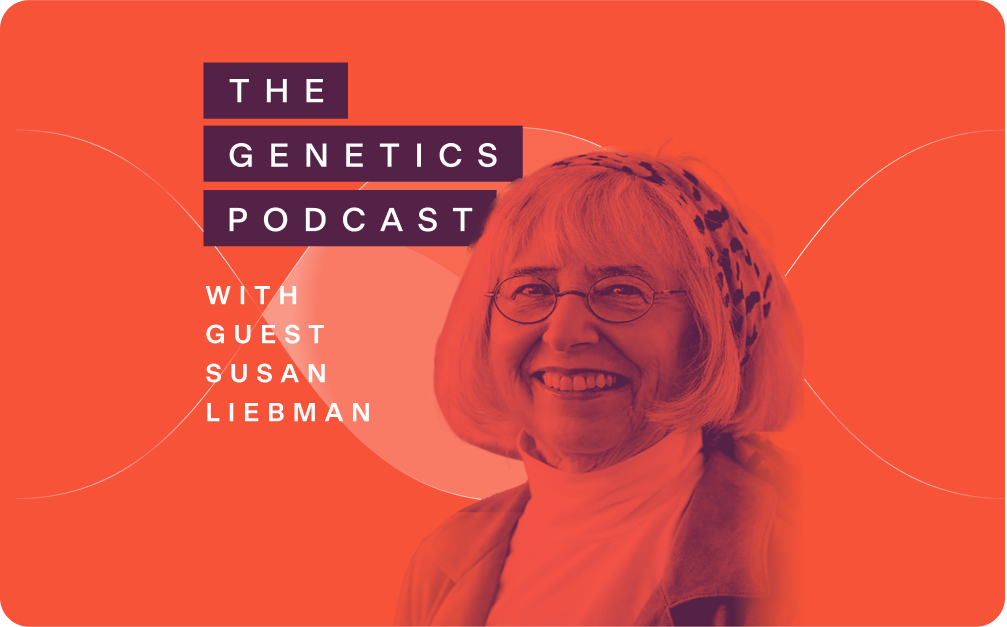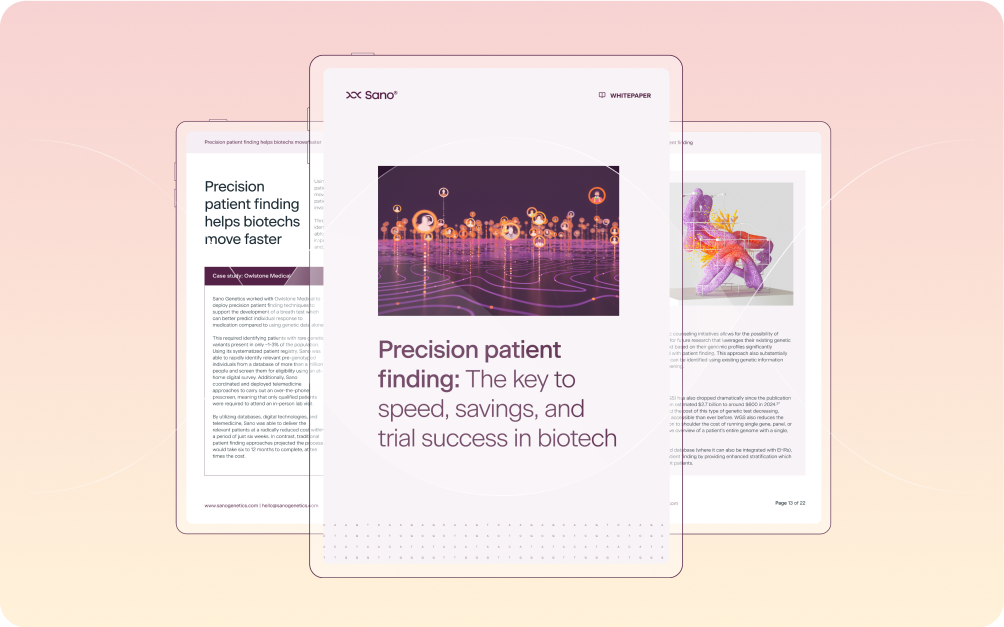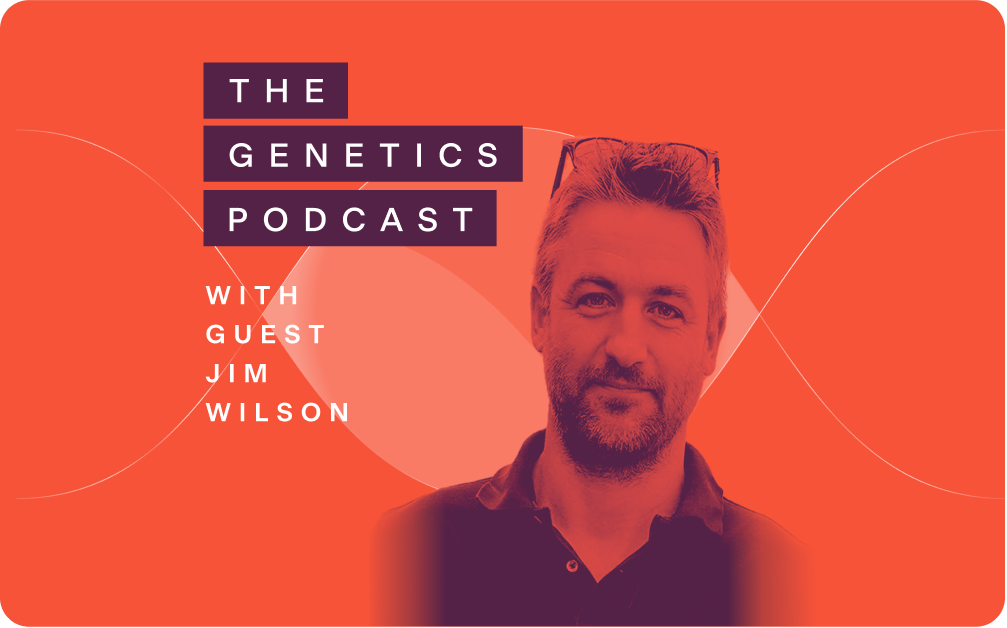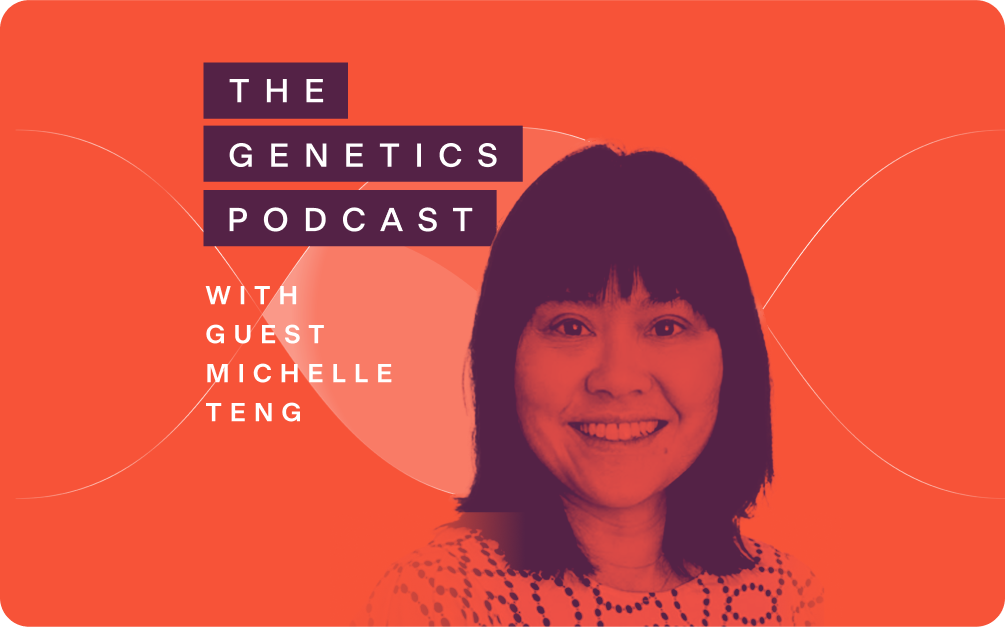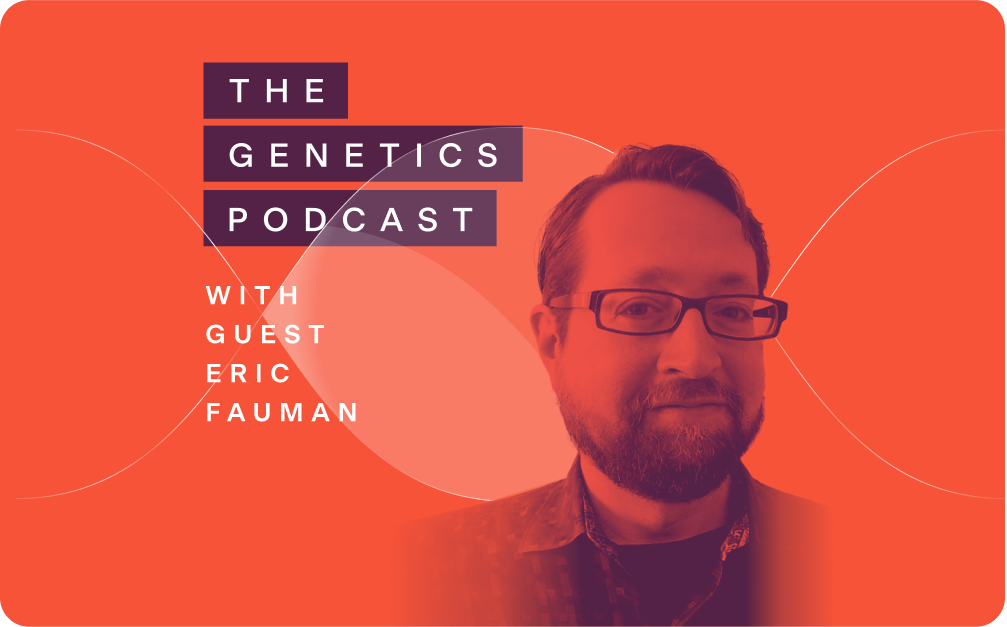Clinical research blog
Explore our blog for insights into the big questions in precision medicine and clinical research.
On a recent episode of The Genetics Podcast, Patrick Short speaks with Dr. Susan Liebman, a professor emerita and researcher, about her personal and professional journey in genetics. Dr. Liebman shares her deeply moving story of uncovering the genetic underpinnings of her family’s health tragedy—a sudden, fatal cardiac event that claimed the life of her niece—and how it inspired her to write her memoir, The Dressmaker’s Mirror. The conversation goes into detail on the role of genetics in health, the importance of early screening, and the human side of science.
Precision patient finding has the potential to radically reduce the cost of trials and create a more centralized approach which serves to benefit a multitude of stakeholders, from biotechs to HCPs and patients.
Clinical trials are essential for bringing new treatments to patients, but they’re not without challenges. Recruiting the right participants, staying on budget, and avoiding delays are some of the biggest hurdles. Unfortunately, traditional methods of finding and enrolling patients often fall short—costing time, money, and sometimes even the success of the trial.
That’s where precision patient finding comes in. By using tools like genomic profiling and AI, this approach is making trials faster, more efficient, and ultimately more patient-friendly.
Precision patient finding is an evolving field that is growing in line with the demands of precision medicine and rare disease research. Unlike traditional patient recruitment methods, it harnesses technologies such as data analysis and advanced analytics, and utilizes comprehensive patient data (including genomic profiles) to rapidly identify groups of patients who have an increased likelihood of study eligibility and enrollment. Here we’ll explore some of the key elements of precision patient finding and how they interlink.
Implementing precision neurology comes with its own set of complexities—from decoding the brain's intricate workings to addressing the ethical challenges of using genetic data. Let’s take a closer look at these hurdles.
In the latest episode of The Genetics Podcast, Patrick speaks with Dr. Jim Wilson, Professor of Human Genetics at the University of Edinburgh, about his work studying isolated populations and their unique genetic makeup. As the lead of the Viking Genes project, Jim's research explores the genetic history of Scottish islanders. They have already found several genetic variants of interest, including a BRCA1 mutation present in 1 in 20 individuals on one island, and a cardiomyopathy variant 4,700 times more common in Shetland. Discoveries like these have profound implications for population health and preventive medicine. Read on for a quick summary of the episode:
Sano is proud to support Neuron23 in the NEULARK Phase 2 clinical trial, a groundbreaking study exploring NEU-411, a brain-penetrant LRRK2 inhibitor with the potential to slow disease progression in Parkinson’s. This precision medicine trial leverages advanced digital biomarkers and patient stratification techniques to identify those most likely to benefit from treatment.
Last week on The Genetics Podcast, Patrick Short sat down with Michelle Teng, CEO and co-founder of Etcembly, to explore her work at the intersection of immunotherapy and machine learning. The discussion ranged from breakthroughs in cancer treatment to Michelle’s deeply personal motivation for advancing rare disease therapies. In case you missed it, here's a quick recap of the episode:
Precision medicine is transforming neurology by enabling more accurate diagnoses and tailored treatments. Here, we explore key components driving this progress, including biomarkers, advances in genomic sequencing, and other critical areas of research.
In a recent episode of The Genetics Podcast, host Patrick Short sits down with Eric Fauman, Executive Director and Head of Computational Biology in Pfizer's Internal Medicine Research Unit. With over 26 years at Pfizer and a background in protein crystallography and genetics, Eric's work combines computational biology and genetics to drive drug discovery, particularly through the development of tools and datasets that bring genetic insights into the drug development process.

